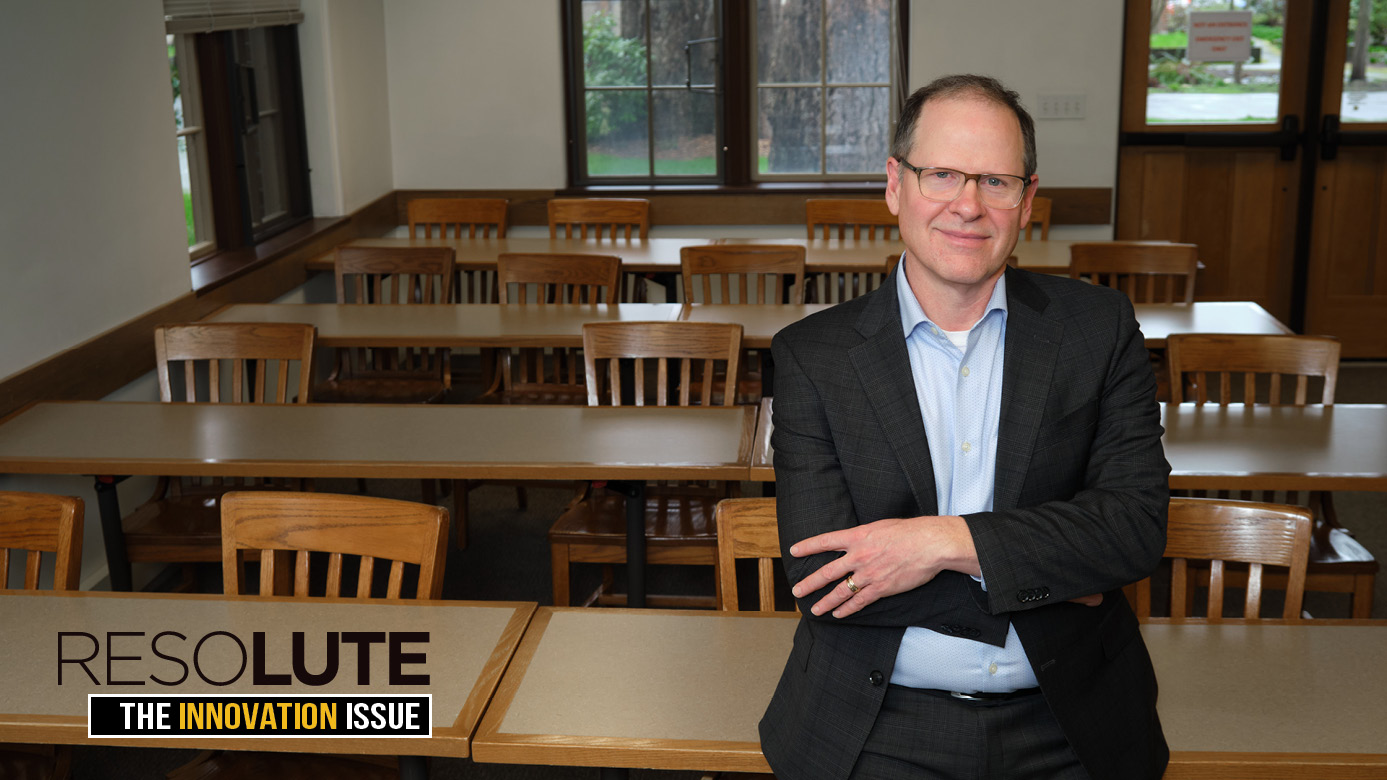
Halvorson co-founded the innovation studies program and minor in 2016 and currently serves as the program director. Innovation is his passion, but Halvorson’s extensive knowledge of history fortifies his perspective.
“In our program we look at the long history of innovation, how people have created new things, and what the positive and negative consequences of those things have been over time,” he explains. “An analysis of innovation should look at human communities, economic issues, art & design, ethics, technology, and more. If you examine these elements in an interdisciplinary way, you can really assess the dynamics of change in society.”
Halvorson teaches business and economic history courses in the history department, as well as classes on innovation and the history of technology. He has also continued publishing books, including the lively new volume, Code Nation: Personal Computing and the Learn to Program Movement in America (2020).
I met with him on a rainy winter afternoon to discuss how he defines innovation, how it’s taught at PLU, and why studying history is critical to understanding the benefits and consequences of innovation.
Is it possible to define innovation in a single sentence?
I think so, let me try. Innovation is creating some new method or idea or product, and it is basically a creative act to do something new.
Wow, there it is. Straight forward and also exciting. I think it’s interesting that the study of innovation, for you, starts with learning from historical contexts.
Since WWII, nations around the world have focused on technological innovation, imagining that product development and new initiatives will boost their economies and measures like Gross Domestic Product (GDP). Innovation now is considered a positive thing, but it hasn’t always seemed beneficial. It used to be that new ideas were viewed cautiously or negatively by more conservative societies. In some cases there were laws against innovation, particularly religious innovation, because creatively exploring existing religious traditions felt threatening or revolutionary. It’s really only been in the last 75 years or so that innovation has been largely viewed as positive within society.
The Key to Innovation | News | PLU - Pacific Lutheran University
Read More
Bagikan Berita Ini

















0 Response to "The Key to Innovation | News | PLU - Pacific Lutheran University"
Post a Comment